TNPSC has officially announced the Group 4 Exam Date 2026, and aspirants must now turn their focus to the latest TNPSC Group 4 Syllabus and Exam Pattern. To succeed in the exam, candidates should thoroughly understand the revised syllabus, which includes topics from both the Preliminary and Main stages. Candidates who qualify the TNPSC Group 4 exam can get government posts such as junior assistant, bill collector, typist, field surveyor, and village administrative officer in Tamil Nadu.
A detailed breakdown of the syllabus and structure is available in the article to help streamline your preparation.
TNPSC Group 4 Syllabus 2026
The TNPSC Group 4 Syllabus and Exam Pattern are structured to assess key competencies like general awareness, reasoning ability, and subject-specific knowledge essential for various government roles. Understanding the syllabus helps candidates plan their studies strategically and improve their performance in the TNPSC Group 4 Exam 2026. It also ensures better time management during preparation, reduces exam stress, and allows focused revision on high-weightage topics, ultimately enhancing the chances of success.
Tamil Nadu PSC Group 4 Syllabus and Exam Pattern
Refer to the table below for a detailed TNPSC Group 4 written exam syllabus as mentioned in the TNPSC Group 4 Notification 2026. Knowing the syllabus well helps candidates focus on important topics, manage time effectively, and improve exam scores.
| TNPSC Group 4 Syllabus and Exam Pattern 2026: Key Highlights | |
| Recruiting Organization | Tamil Nadu Public Service Commission (TNPSC) |
| Exam Name | Group 4 |
| Question Type | Multiple Choice Questions(MCQs) |
| Category | Syllabus and Exam Pattern |
| Selection Process | Written Exam and Documents Verification |
| Negative Marking | No Negative Marking |
| Exam Mode | Offline |
| Notification Date | 6 October 2026 |
| Exam Date | 20 December 2026 |
| Exam Time | 09:30 AM- 12:30 PM(3 hour) |
| Official Website | @www.tnpsc.gov.in |
TNPSC Group 4 Written Exam Pattern 2026
The TNPSC Group 4 Exam Pattern outlines the exam structure, including question types, marking scheme, duration, and subjects. It helps candidates focus on key areas for roles like VAO, Junior Assistant, Typist, and Forest Guard in Tamil Nadu.
The TNPSC Group 4 exam syllabus includes three main sections:
- Tamil Eligibility-cum-Scoring Test
- General Studies
- Aptitude and Mental Ability Test
Candidates must prepare well in all sections to increase their chances of selection.
| TNPSC Group 4 Exam Pattern 2026 | ||||
| Subjects | Topics | Max. Questions | Total Marks | Time Duration |
|
Tamil Eligibility-cum-Scoring Test* (SSLC Standard)
|
இலக்கணம் | 25 |
150
|
3 Hours
|
| சொல்லகராதி | 15 | |||
| எழுதும் திறன் | 15 | |||
| கலைச்சொற்கள் | 10 | |||
| வாசித்தல்- புரிந்து கொள்ளும் திறன் | 15 | |||
| எளிய மொழி பெயர்ப்பு | 5 | |||
| இலக்கியம் தமிழ் அறிஞர்களும் தமிழ்த்தொண்டும் | 15 | |||
|
General Studies (SSLC Standard)
|
General Science | 5 |
150
|
|
| Geography | 5 | |||
| History, Culture of India, and Indian National Movement | 10 | |||
| Indian Polity | 15 | |||
| Indian Economy and Development Administration in Tamil Nadu | 20 | |||
| History, Culture, Heritage, and Socio-Political Movements of Tamil Nadu | 20 | |||
| Aptitude & Mental Ability Test (SSLC Standard) | Aptitude | 15 | ||
| Reasoning | 10 | |||
| Total | 200 |
300
|
||
Note: The Minimum Qualifying Marks for all sections/ communities are 90. i.e, candidates who score more than 90 are considered for selection, and the final cut-off marks will be released after the merit list PDF.
- The TNPSC Group 4 Exam will be conducted in offline mode.
- The total duration of the exam is 3 hours.
- Answers must be marked on an OMR sheet.
- After the exam, TNPSC will release the official Answer Key.
- Candidates can use the Answer Key to estimate their scores.
- Candidates are allowed to raise objections against the Answer Key if needed.
- There is no negative marking in the exam.
- Candidates must choose either General Tamil or General English, and this section is compulsory.
TNPSC Group 4 Syllabus 2026 Subject-wise
The TNPSC Group 4 exam includes sections like General Studies, Science, Aptitude, Current Affairs, General Awareness, and Tamil Eligibility-cum-Scoring Test. Preparing all areas evenly is crucial for a strong performance and success in this competitive exam.
Unit 1: TNPSC Group 4 Written Syllabus: General Science
Nature of Universe – Measurement of physical quantities – General scientific laws in motion – force, pressure, and energy – Everyday application of the basic principles of mechanics, electricity, magnetism, light, sound, heat, and nuclear physics in our daily life.
Elements and compounds, acids, bases, salts, petroleum products, fertilizers, pesticides, metallurgy, and food adulterants; main concepts of life science, classification of living organisms, evolution, genetics, physiology, nutrition, health and hygiene, human diseases; Environmental science; Latest inventions in science and technology; Current affairs.
Unit II: Group 4 Written Exam Syllabus: Geography
Earth location – Physical features – Monsoon, rainfall, weather, and climate – Water resources – Rivers – Soil, Minerals, and Natural resources – Forest and Wildlife – Agriculture pattern; Transport – Communication; Population density and distribution in Tamil Nadu and India; Calamities – Disaster management – Environment – Climate change; Geographical landmarks; Current affairs
Unit III: TNPSC Group 4 Syllabus: History, Culture of India, and Indian National Movement (10 Questions)
Indus Valley Civilization – Guptas, Delhi Sultans, Mughals, and Marathas – South Indian History; Cultural and political history of Tamil Nadu with special reference to the freedom movement – Early uprisings against British Rule – Indian National Congress – Emergence of Leaders – B.R Ambedkar, Bhagat Singh, Bharathiar, V.O. Chidambaranar, Thanthai Periyar, Jawaharlal Nehru, Rabindranath Tagore, Kamarajar, Mahatma Gandhi, Maulana Abul Kalam Azad, Rajaji, Subhash Chandra Bose, Muthulakshmi Ammiyar, Mavalur Ramamirtham, and other National Leaders
Different modes of agitation of Tamil Nadu and movements; Characteristics of Indian Culture – Unity in Diversity – Race, Language, Customs; India as a secular state.
Unit IV: Indian Polity (15 Questions)
Constitution of India – Preamble to the Constitution – Salient features of the Constitution – Union, State and Union Territory; Citizenship, Fundamental Rights, Fundamental Duties, Directive Principles of State Policy; Union Executive, Union Legislature – State Executive, State Legislature – Local Governments, Panchayat Raj
Spirit of federalism: Centre – State relationships; Election Commission in India – Rule of Law; Corruption in public life – Anti-Corruption measures – Lokpal and Lokayukta – Right to Information – Empowerment of Women – Consumer Protection Forums – Human Rights Charter; Political parties and political system in Tamil Nadu and India; Current affairs.
Unit V: Indian Economy and Development Administration in Tamil Nadu (20 Questions)
Nature of Indian economy – Five-year plan models – an assessment – Planning Commission and NITI Aayog – Sources of revenue – Reserve Bank of India – Finance Commission – Resource sharing between Union and State Governments – Goods and Services Tax; Economic trends – Employment generation, Land reforms and Agriculture – Application of Science and Technology in Agriculture
Industrial growth – Rural Welfare oriented programmes – Social problems – Population, Education, Environment, Health, Employment, Social Justice and Social Harmony as the cornerstones of socio-economic development; Education and Health systems in Tamil Nadu; Geography of Tamil Nadu and its impact on economic growth; Welfare schemes of Government; Current socio-economic issues; Current affairs.
Unit VI: History, Culture, Heritage, and Socio-Political Movements of Tamil Nadu (20 Questions)
History of Tamil Society, related archaeological discoveries – Tamil Literature from Sangam age till contemporary times; Thirukkural – Significance as a Secular Literature – Relevance to everyday life – Impact of Thirukkural on Humanity – Thirukkural and Universal Values – Relevance to Socio-politico-economic affairs – Philosophical content in Thirukkural; Role of Tamil Nadu in freedom struggle – Early agitations against British Rule – Role of women in freedom struggle; Various Social reformers, Social reform movements and Social transformation of Tamil Nadu.
Part B: Aptitude and Mental Ability (SSLC Standard – 25 Questions)
Below is Part B of the TNPSC Group 4 Syllabus 2026, covering topics related to Aptitude and Mental Ability. The detailed syllabus is provided here for your reference.
Unit I: TNPSC Group 4 Syllabus for Aptitude (15 Questions)
The following paragraphs go through the aptitude exam and mental ability syllabus:
- Simplification
- Percentage
- Highest Common Factor (HCF)
- Lowest Common Multiple (LCM)
- Ratio and Proportion.
- Simple Interest
- Compound Interest
- Area
- Volume
- Time and Work
Unit II: Reasoning (10 Questions)
- Logical Reasoning
- Puzzles
- Dice
- Visual Reasoning
- Alpha-Numeric Reasoning
- Number Series
Part C: தமிழ் தகுதி மற்றும் மதிப்பீட்டுத் ததர்வு (SSLC Standard – 100 Questions)
TNPSC Group 4 Tamil Eligibility Cum Scoring Test
The Tamil Language Test is conducted to assess the knowledge of the language. Candidates are required to score 40% marks in this test. The test includes Tamil Grammar, Literature, Scholars, etc.
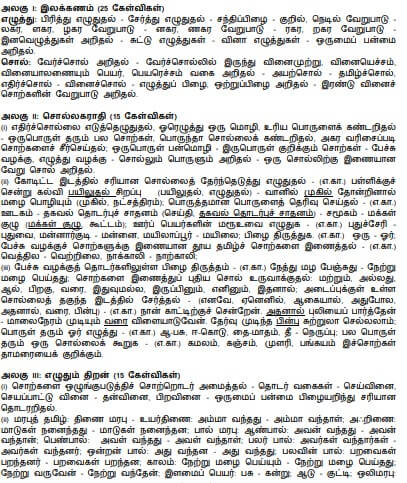
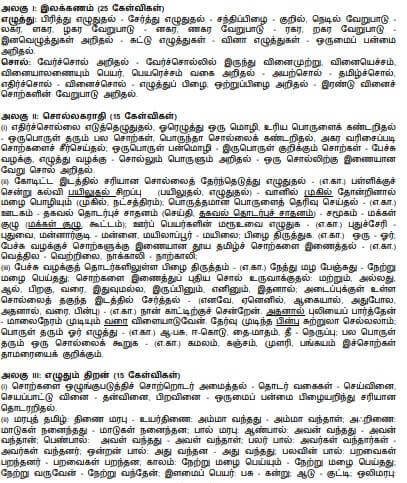
Part C: General English (SSLC Standard – 100 Questions) (For Differently Abled Candidates only)
Here, we have provided the TNPSC Group 4 Syllabus of Part C, which includes English topics for Differently Abled Candidates only.
Unit I: Grammar (25 Questions)
- Parts of Speech, Question Tags, Active voice and passive voice, Types of sentences, Statement, Interrogative, Imperative and Exclamatory, Transformation of sentences, Simple, Compound and Complex sentences, Tenses, Tenses in Conditional Sentences
- Use of Articles, Prepositions, Direct and Indirect Speech, Concord, Agreement of the Subject with the Verb, Confusion of Adjectives and Adverbs, Comparison of Adjectives, Adjectives and Verb, Gerunds, Infinitives
- Use of Correlatives, Phrasal Verbs, Same Word used as different Parts of Speech, Apposition, Use of prefix and suffix, Compound words, Degrees of Comparison, Clarity of Sentences, Sentence Completion, Appropriate use of Articles.
Unit II: Vocabulary (15 Questions)
Synonyms, Antonyms, Homonyms, Homophones, Collocations, Idioms & Phrases, Phrasal verbs, Spelling of words, Correct usage of words, One word substitution, Word creation, Singular and plural (including Zero-plural), Derivatives, Abbreviations, British and American English, Compound words, and Figures of speech.
Unit III: Writing Skills (10 Questions)
Writing formal and informal letters, Types of Letters (Multiple Choice Question), Jumbled sentences, Finding out the right order of sentences, Making queries (Multiple Choice Question), Notice, Biographies, Substitution.
Unit IV: Technical Terms (10 Questions)
Administrative Terms, Department-related, General and Official terms, Official Correspondence (Only basics).
Unit V: Reading Comprehension (20 Questions)
Unseen passage (including poems, advertisements, Government-related News), Question types: Short questions, Wh questions, Match the following, Sentence Completion, True/False statements, Phrase meaning, Choose the best title, Synonyms, Antonyms.
Unit VI: Translation (15 Questions)
Word Translation, Sentence Translation, Tense-related translation tasks, Tense / Voice-related tasks.
Unit VII: Literary Works (15 Questions) (SSLC Standard)
- The Model Millionaire – Oscar Wilde; A Retrieved Reformation – O. Henry; The Selfish Giant – Oscar Wilde; The Night the Ghost Got In – James Thurber; The Open Window – Saki; With the Photographer – Stephen Leacock; The Gift of the Magi – O. Henry;
- Our Local Team – S.J. Scully; Snake – D.H. Lawrence; The Piano – D.H. Lawrence; The Man He Killed – Thomas Hardy; O Captain! My Captain! – Walt Whitman; The River – Caroline Ann Bowles; Be the Best of Whatever You Are – Douglas Malloch; A Psalm of Life – H.W. Longfellow; Laugh and Be Merry – John Masefield; The Apology – Ralph Waldo Emerson; Women’s Rights – Annie Louisa Walker; The Cry of the Children – Elizabeth Barrett Browning; Migrant Bird – Famida Y. Basheer; To Cook and Eat – Debbie Lamedman
- The Flying Wonder – Stephen Leacock; The First Patient – Jerome K. Jerome; My Greatest Olympic Prize – Jesse Owens; The One Minute Apology – Spencer Johnson; The Unexpected – Robert Lynd; The Wooden Bowl – Leo Tolstoy; The Tears of the Desert – C. Rajagopalachari; The Last Leaf – O. Henry; The Merchant of Venice – William Shakespeare (Play); The Never Never Nest – Cedric Mount (Play)
- The Bishop’s Candlesticks – Norman Mckinnel (Play); The Dear Departed – Stanley Houghton (Play); India – My Land – Dr. Abdul Kalam; The Shilpi – S. Mangalam; Nine Gold Medals – David Roth, The Secret of the Machines – Rudyard Kipling; The Ant and the Cricket – Adapted from Aesop’s Fable; The Comet – Norman Littleford; The Snake and the Mirror – Vaikom Muhammad Basheer
- The Night the Ghost Got In – James Thurber; Two Gentlemen of Verona – A.J. Cronin, The Cat and the Painkiller – Mark Twain; The Model Millionaire – Oscar Wilde, The Refugee – K.A. Abbas; The Hero – R.K. Narayan; The Selfish Giant – Oscar Wilde; The Singers – Herbert Kaufman; The Tears of the Desert – C. Rajagopalachari; The Bench – Richard R. Thomas; The Wooden Bowl – Leo Tolstoy
- My Grandmother’s House – Kamala Das; The School Boy – William Blake; A Poison Tree – William Blake; Be the Best – Douglas Malloch; A Psalm of Life – H.W. Longfellow; Snake – D.H. Lawrence; No Men are Foreign – James Kirkup;
- The Cry of the Children – Elizabeth Barrett Browning; The Apology – Ralph Waldo Emerson; The Man He Killed – Thomas Hardy; Migrant Bird – Famida Y. Basheer; Women’s Rights – Annie Louisa Walker; The Piano – D.H. Lawrence; India – Dr. Abdul Kalam.
Note: The Syllabus for Unit VII is based on the school textbook up to the SSLC Standard.
TNPSC Group 4 Syllabus 2026 PDF Download in Tamil
Downloading the TNPSC Group 4 Syllabus PDF in Tamil helps candidates understand key topics easily, manage time better, and reduce exam stress. It supports focused preparation by highlighting important subjects and improves retention by offering content in the native language, making study more efficient and effective.
How to Prepare Effectively for the TNPSC Group 4 Exam
Preparing for the TNPSC Group 4 Exam requires a strategic approach: understand the syllabus, practice past papers, manage time well, and revise regularly. Consistency and focus are crucial to boost your chances of success. Follow these steps to improve your preparation.
- Know the Syllabus & Exam Pattern: Carefully go through the TNPSC Group 4 syllabus and exam pattern to understand the subjects covered, the marking system, and the importance of each topic.
- Make a Study Plan: Prepare a clear study timetable, giving enough time to each subject. Spend extra time on tougher topics while reviewing the easier ones regularly.
- Practice Mock Tests: After revision, candidates should attempt “Mock Tests” similar to the exam pattern to improve their accuracy, time management, and effective revision.
Important Topics to Focus On for TNPSC Group 4 Exam
To crack the TNPSC Group 4 exam, it’s important to concentrate on high-weightage and frequently asked topics. Here are the key areas you should focus on:
General Studies
- History of Tamil Nadu and India (freedom movement, cultural heritage)
- Geography of India and Tamil Nadu
- Indian Polity and Constitution
- Indian Economy
- Current Affairs (State, National & International)
- Science – Basic concepts, inventions, everyday science
- Environmental Issues and Disaster Management
Aptitude and Mental Ability
- Simplification, HCF & LCM
- Ratio & Proportion, Percentage
- Time, Speed & Distance
- Time & Work
- Area, Volume, and Mensuration
- Logical Reasoning, Puzzles, and Number Series
- Data Interpretation (Tables, Graphs)
General Tamil / General English
Choose one based on your preference:
- General Tamil: Grammar, Prose, Poetry, Literature
- General English: Parts of Speech, Tenses, Synonyms & Antonyms, Comprehension, Authors and Literary Works
Subject-wise Weightage in TNPSC Group 4 Exam
Understanding the subject-wise weightage in the TNPSC Group 4 exam can help candidates plan their preparation smartly. The exam consists of a single paper with three major sections:
| Subject | Number of Questions | Marks |
|---|---|---|
| General Studies | 75 | 112.5 |
| Aptitude & Mental Ability Test | 25 | 37.5 |
| General Tamil / General English (Optional) | 100 | 150 |
| Total | 200 | 300 |
- General Tamil/English carries the highest weight (50% of total marks).
- You should also give equal time to General Studies and Aptitude to build a strong base.
- If you score well in the language section, it can greatly improve your overall score.
| Also Check |
| TNPSC Group 4 Salary |
| TNPSC Group 4 Previous Year Papers |


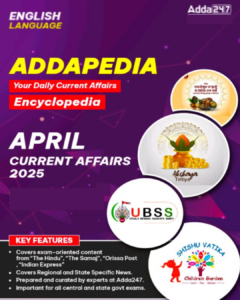

 WBSSC Group D Syllabus 2026 and Exam Pat...
WBSSC Group D Syllabus 2026 and Exam Pat...
 Punjab Patwari Syllabus 2026, Check Exam...
Punjab Patwari Syllabus 2026, Check Exam...
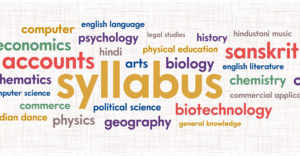 OSSC CHSL Syllabus 2026, Check Prelims A...
OSSC CHSL Syllabus 2026, Check Prelims A...
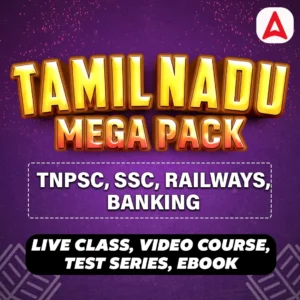
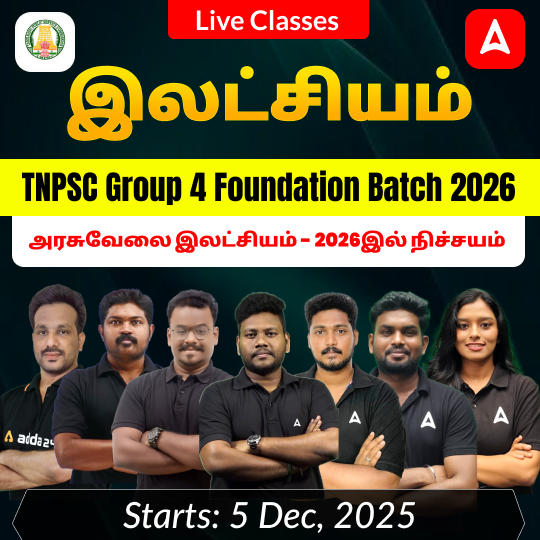
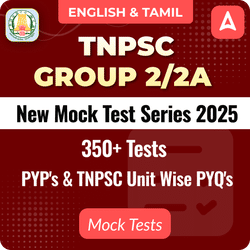
 Adda247 Job portal has complete information about all Sarkari Jobs and Naukri Alerts, its latest recruitment notifications, from all state and national level jobs and their updates.
Adda247 Job portal has complete information about all Sarkari Jobs and Naukri Alerts, its latest recruitment notifications, from all state and national level jobs and their updates.




